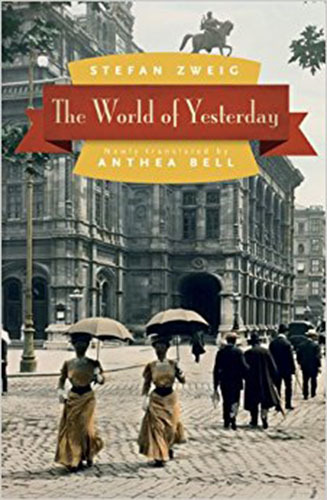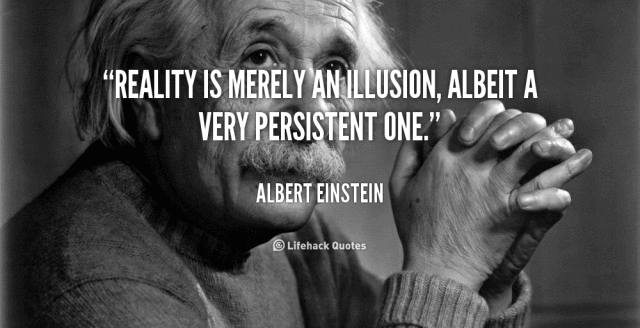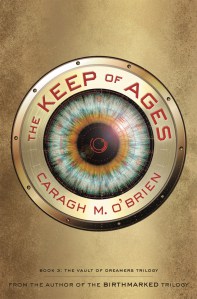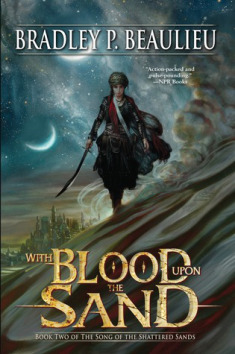The memoir, The World of Yesterday (Die Welt von Gestern), completed the day before his suicide by Stefan Zweig (1881-1942), does not seem to me to be leading up to suicide (with his younger, second wife, Lotte). Like the (later) memoirs of Paul Bowles, Without Stopping, The World of Yesterday is a startlingly impersonal memoir. It really is about the worlds (in Vienna, Paris, Innsbruck, London) in which Zweig lived and increasingly prospered, not about what he felt. Each of his two wives gets only a cursory mention. The man who achieved great fame and fortune writing about sexual passion does not even hint at any sexual passions of his own. The one passion that is detailed is one for acquiring memorabilia of those he revered, including Beethoven’s desk (and indeed the furnishings of the flat in which he died), a Michelangelo sketch, and the first page of a Mozart aria. These treasures were mostly left behind in London, which Zweig expected to be conquered by the Nazis (these are now in the British Library).

He did get himself and a lot of his stuff out of Austria in 1934, well before the Anschluss of 12 March 1938. And before being treated as an enemy alien in Britian, he moved on to the New World (Ossington, New York; Pertópolis, Brazil) in 1940. Exile did not agree with him, though there was much of Viennese culture (the backbiting, the educational system) that he also disliked. He seems to have been happiest in Belgium and France before they were engulfed by the First World War. He particularly revered the forgotten Francophone Belgian poet Émile Verhaeren (1855-1916), Bohemian-Austrian lyrical poet Rainer Marie Rilke (1875-1926), and his French brother in pacifism, Romain Rolland (1866-1944; author of the ten-volume Jean-Christophe, Nobel Prize 1915). Both Zweig and Rolland revered Sigmund Freud (1856-1919) , whom Zweig saw more in London than earlier in Vienna.
Zweig praises the early work of Hugo von Hoffmannstahl (1874-1929) without noting the contempt in which Hoffmanstahl held Zweig’s work. Zweig succeeded Hoffmannstahl as librettist of choice of Richard Strauss (1864-1949) and Strauss insisted on Zweig’s name remaining on the opera Fredenstag premiered in Munich in 1938 (and performed before Hitler in Vienna on 10 June 1939). Zweig recorded his appreciation for Strauss’s support when no work by a Jew was permitted in the Reich.
Zweig had resisted Zionism (though his first patron was the founder of modern Zionism, Theodor Herzl [1860-1904] and other –isms other than pacifism. His refusals, including of war with the Nazis, irritated most everyone, including Thomas Mann and Hannah Arendt (who was in a Zionist phase in 1942 and misrepresented what was in his memoir in a vicious review of it). His memoir certainly did not scant the forebodings he felt about the Nazis, even before they gained power in Germany. And he criticized even his own limited involvement in the folly that was the First World War (he had a job in the archives of the Austrian Ministry of War).

The memoir is remarkably self-effacing, praising many other writers (“If we admire more, and more intensely than others, we shall ourselves grow richer than those timid ones who content themselves with choice morsels of life ,” he wrote. “The more a man admires, the more he possesses”,) and not reveling in his widespread popularity (the most translated of German writers between the war, more than Thomas Mann, Herman Hesse, or Sigmund Freud). “I never considered myself important enough to feel tempted to tell others the story of my life” he wrote early on in World, and he treats his trajectory primarily as a vantage-point into the vanished Hapsburg world, pre-WWI Paris, and the chaos of inflations, etc. between the world wars (living in Innsbruck).
There is nothing about the process of Zweig’s voluminous writing or the sources of ideas for his fictions.
The end of the book is quite upbeat, not at all despairing (as its author must have been to take his own life and that of his younger wife):
“In the last resort, every shadow is also the child of ight, and only those who have known the light and the dark, have seen war and peace, rise and fall, have truly lived their life.”
Though it has an index, the University of Nebraska edition of Anthea Bell’s very limpid, not-at-all Germanic translation irritatingly lack a table of contents.
©2017, Stephen O. Murray
Advertisements Share this:




